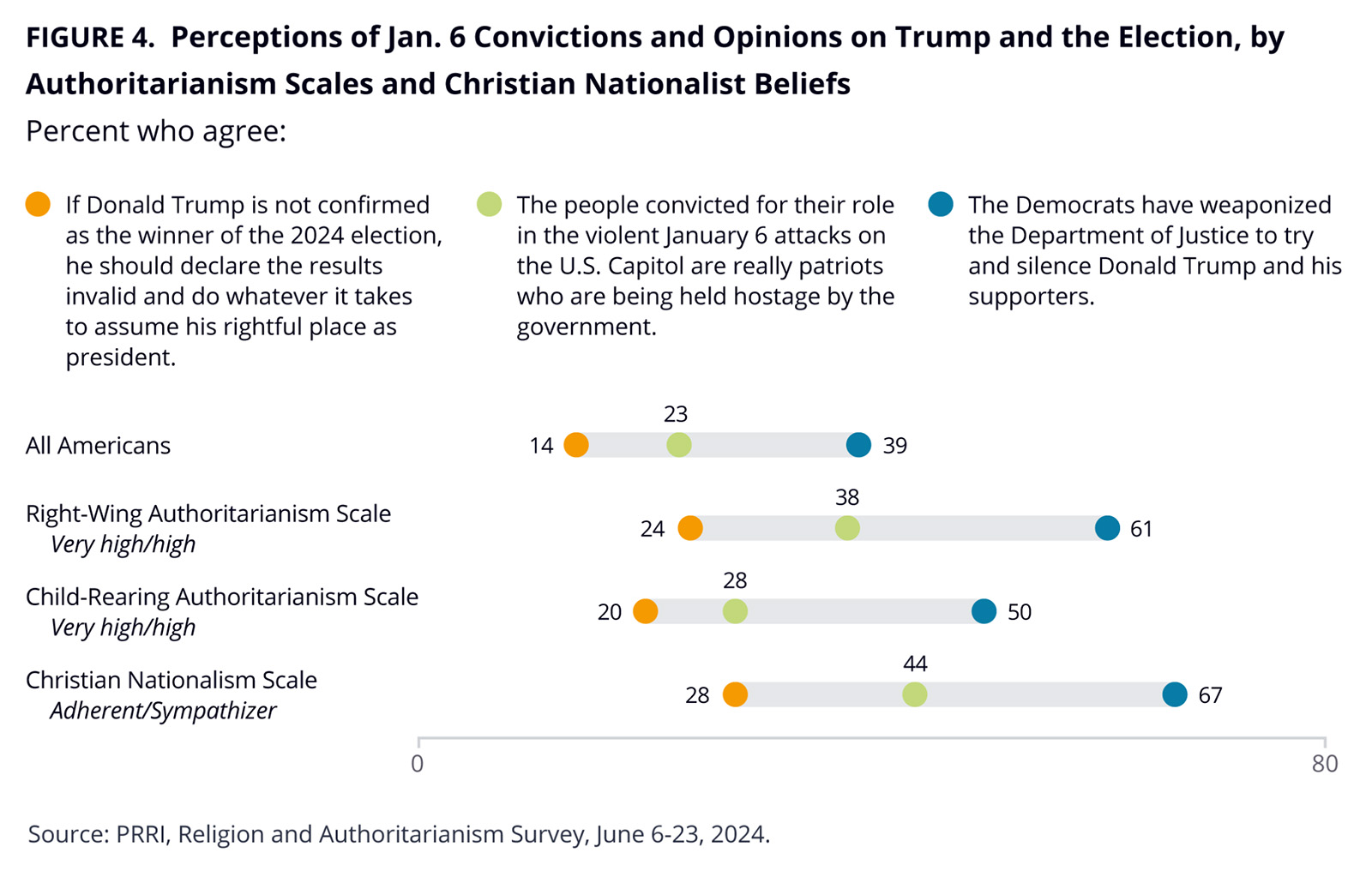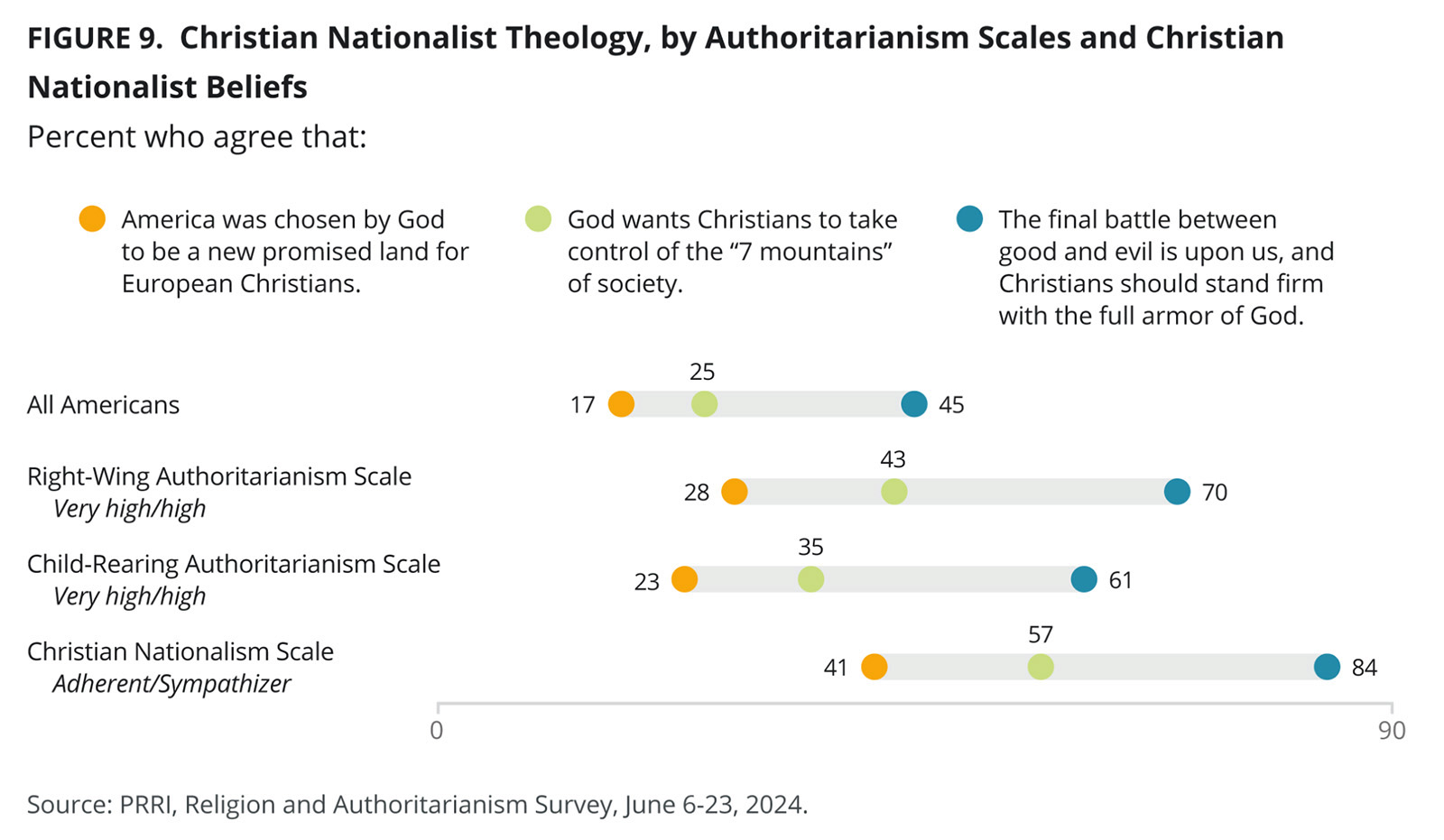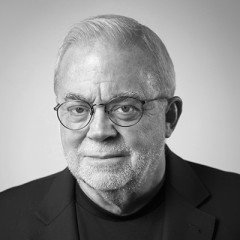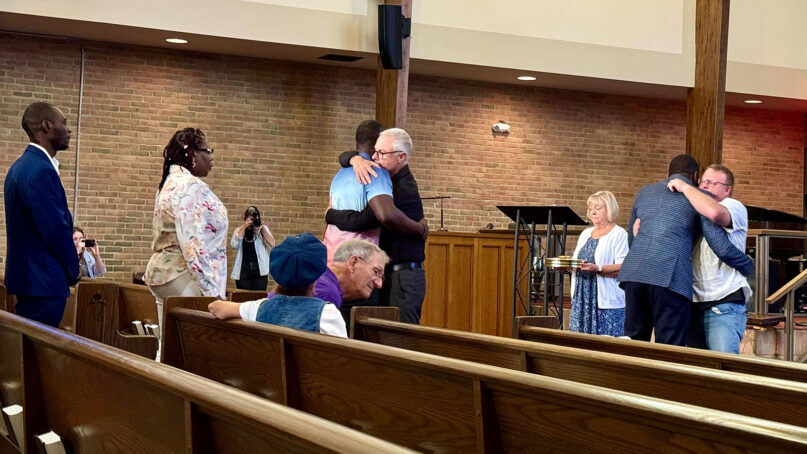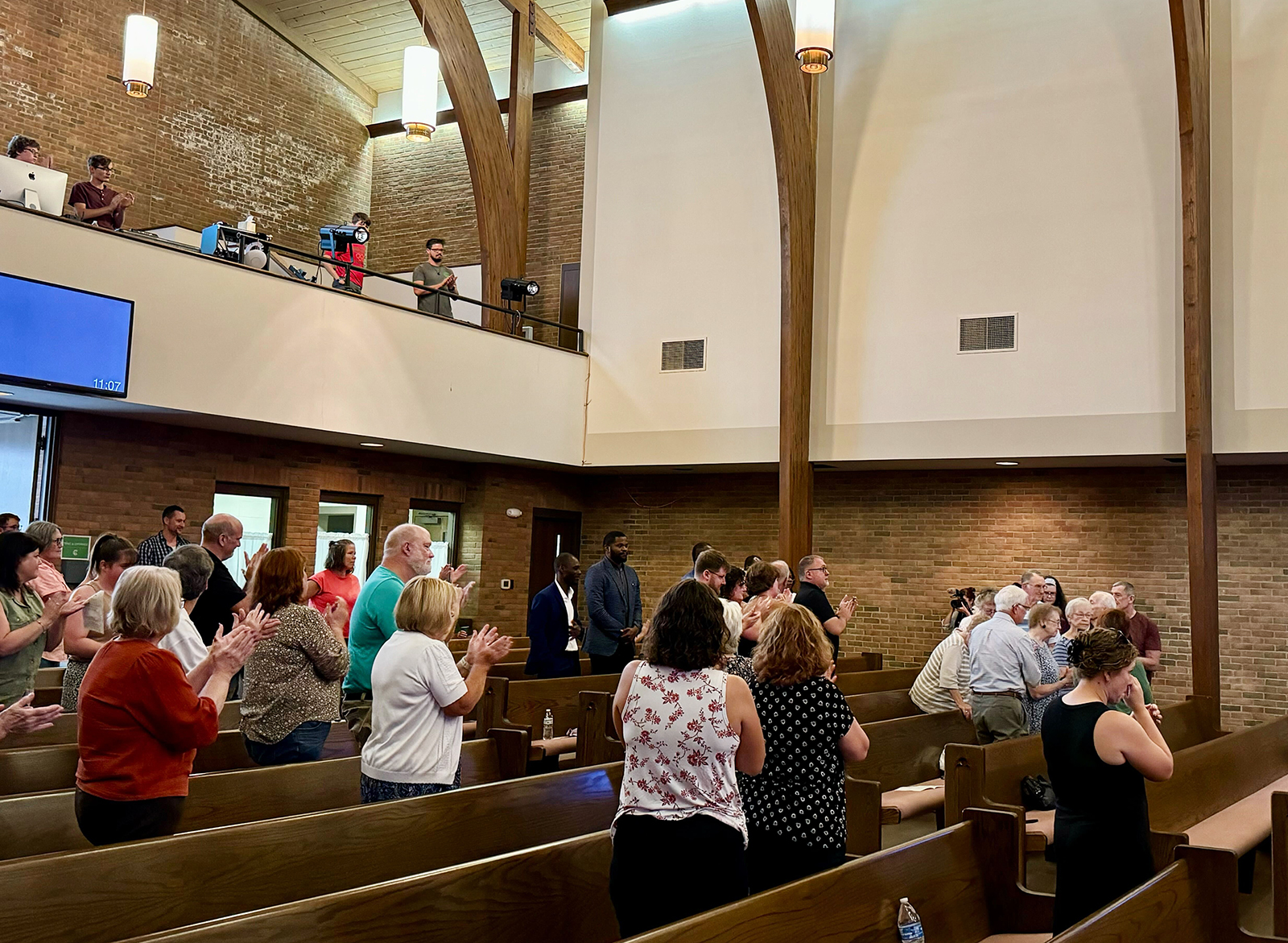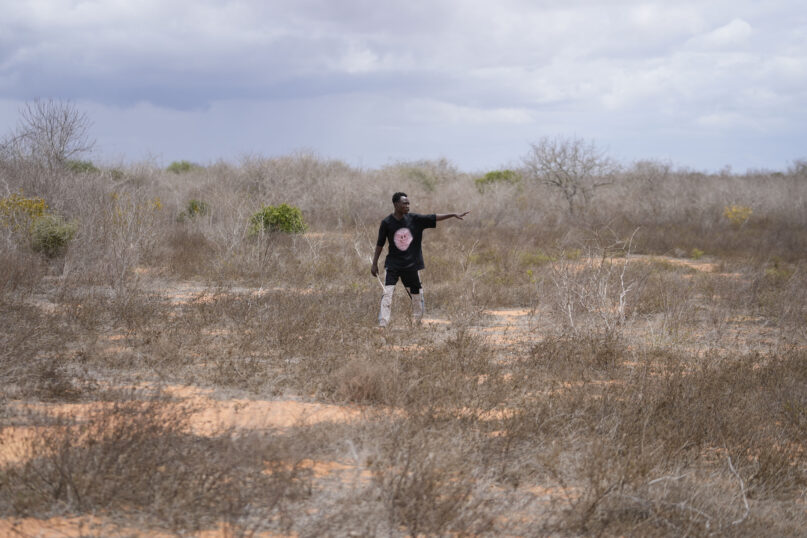THANK THE GODS THEY ALL WROTE BOOKS
Today’s young Wiccans and witches tune in to social media for community.

(Image from Pixabay/Creative Commons)
August 1, 2024
By Heather Greene
(RNS) — The contemporary pagan community, unlike many traditional religions, has had direct access to its living founders for decades. Now many of those pioneers, born in the 1940s, are “crossing the veil,” a common pagan phrase. And their stories may be going with them as interest in their legacy wanes among younger generations in a changing world.
“Each death of old friends and contemporaries feels like another bit of my soul is being ripped away,” said Oberon Zell in an email interview with Religion News Service.
Zell, who now resides in North Carolina, co-founded the pagan Church of All Worlds in 1962. He is a well-known author and a long-respected figure in the pagan movement since its inception.
“We felt like pioneers, venturing into unknown territory of our imaginations,” Zell said. “We’d grown up as bright kids, often bullied.”
He believes that this “peer disdain” bred their creativity and courage to be “fearless.”
Zell’s group eventually mingled with the emerging Wiccan community, occultists and other magical practitioners. Their mission, he said, was “to make the world safe for people like us, and I believe we succeeded.”

Oberon Zell. (Courtesy photo)
Today, those young pioneers are now elders in their 70s and 80s, and every year sees the loss of a few more.
Wiccan priestess Mary Elizabeth Witt, known as Lady Pythia, died in June near the summer solstice, a widely celebrated pagan seasonal holiday honoring the longest day. “Trust her to wait for the brightest light to see her off on her journey,” her sister said.
While not as nationally known as Zell, Pythia was a key player in a largely decentralized, growing religious movement. She was co-founder of the Ohio-based Coven of the Floating Spring and became a trusted voice and leader within the Covenant of the Goddess, a national organization for Wiccans and witches.
RELATED: Rabbi David Wolpe’s pagans aren’t the ones I know
This year also saw the loss of author and Wiccan high priest Ed Fitch, who became a national figure in those early years. Among his many achievements, Fitch spoke publicly in support of witchcraft and was editor of one of the first U.S. witchcraft magazines.
Derrick Land had the “rare opportunity” to meet Fitch near the end of the author’s life. “It is different to have a (live) conversation with such a person” than just reading their books or seeing them on television.

Derrick Land. (Courtesy photo)
Land is the high priest of Shadow Wolf Coven, a Wiccan group in Austin, Texas. He is also the co-founder of Austin Witchfest, a popular pagan event held every April.
Being able to “tap the shoulder of an elder is priceless,” Land said.
Those trailblazers, as he calls them, were not only birthing a new religion, but were also activists, and Land urges his own students to never “lose sight” of that legacy.
“We are able to practice safely because of them,” he said. “It wasn’t that long ago.”
Land, who considers himself a xennial — a person born at the cusp between Generation X and millennials — acknowledged that today’s young pagans are far less impressed with those trailblazers than he, and he is not alone in that observation.
Paganism has evolved since Land began his pagan journey in the 1990s. There is a greater diversity of practice and less dependency on in-person training. More pagans are solitary, or practicing entirely by themselves. A decentralized movement has become even more so.
One main factor, according to our interviewees: social media.
Beckie-Ann Galentine, a millennial in Virginia who first found a witchcraft community through Tumblr, grew up in a rural community in Pennsylvania with no access to in-person groups. She read “anything she could find,” with no guidance on what was authentic.
When she discovered Tumblr’s magical community, she was hooked, describing its members as “breathing their authentic self.”
But there were pitfalls, Galentine said.

Beckie-Ann Galentine. (Courtesy photo)
“I had no conception of misinformation,” she explained, and the digital community eventually proved to be largely “driven by vanity.” The witch aesthetic was more important than spiritual practice. That was 2006.
“It was a crash course,” Galentine said, “on getting exposed to people, rather than having a deliberate goal.”
She believes that her early learning experience, from books to Tumblr, is a “perfect example” of what happens when you don’t have guidance from elders.
“Social media influencers are not a substitute for an elder or mentor,” Galentine said, recognizing the irony. Galentine has since become a popular social media influencer, known as My Bloody Galentine.
In the 2000s, she didn’t know the early pioneers existed. Very few elders were active online and, if they were, their voices were often drowned out by the “loudest social media voices.”
When you “only look at the beacons” on social media, Galentine warned, you miss the deeply personal connections that form from in-person connections.
“I don’t want to say it’s not possible,” she added, but without having guidance or a personal community connection, “it makes (learning) way messier than it needs to be.” She points to her own experience.
Galentine, however, stressed the need for discernment in choosing whom to follow. Some teachings are “deeply problematic,” she said, while others are simply no longer current in a changing pagan world.
Galentine, now a leader herself, typically directs young pagans to relatively new authors who connect well to the younger generation, but she still recommends the classic “Buckland’s Complete Book of Witchcraft” — first published in 1986 and often referred to as “Buckland’s Big Blue” — as “a point of perspective,” she said.
“It may not make sense. But start there,” Galentine advises.
The author, Raymond Buckland, originally from London, is one of the most well-known pagan trailblazers and was instrumental in bringing Wicca to American shores. He died in 2017.
Discernment, as Galentine described, has since become central to the social media engagement of paganism’s youngest representatives, according to Luma Notti, a digital media professional and Gen Z witch in Minnesota.

Luma Notti. (Photo by Lilly St. Laurent)
She believes that this critical skill is fueling, in part, the waning interest in the pioneers. “Many Gen Z folks look critically into witchcraft, New Age beliefs, politics and consumerism,” Notti said.
They are having “real conversations about spiritual psychosis and toxic spirituality,” she explained. “More than half of them are cautious about brand authenticity.” Just being a famous pagan doesn’t impress them much.
For Gen Z, she added, “consumerism, colonization and appropriation are intertwined.” And many of these concerns, along with others, are absent from early pagan teachings.
The digital media experience of Gen Z pagans, overall, is vastly different from that of millennials like Galentine. Gen Z members understand the concept of misinformation and other pitfalls because they grew up with it, Notti said.
“There is a lot of research on the loss of identity and subcultures of Gen Z because of being raised in the digital era and experiencing coming of age during lockdown,” she added. “Many Gen Zers are just trying to survive.”
Pushing back against stereotypes, Notti said: “Millennial and Gen X witches have asserted their presence (online) and already have a particular perception of Gen Z witches and spiritual practitioners.”
It isn’t all aesthetics, she insisted. Notti used the phrase “low key” to describe the trend in Gen Z pagan practices.
“We don’t want to make our practice our entire personality,” she explained. They are unconcerned with labeling how they practice, Notti added. But they still do seek community and often online.
But not always. Land said he has never had a problem finding new students for his Wiccan group and always sees young people enjoying Austin Witchfest.
Buckland’s “Big Blue” decades later still remains an educational staple.
So what does Zell think of all of this, decades after the movement began?
He sees no problem with any of it. “The diffusion at the periphery (of the pagan community) is the main indication” of the pioneers’ success, he said, proudly.
“It’s exactly as I envisioned and hoped it would be,” he said. “We have gone from a scary, paranoid, isolated and persecuted minority to an interesting mainstream phenomenon.”
All these decades later, Zell is still invited to speak at festivals, conferences and other events.
“It’s like having Grandpa at Thanksgiving dinner,” he said. “I’m delighted to see new generations of pagans coming in to take the place of those who are passing away.”






